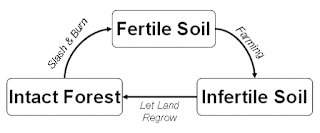 |
| Protesters at Standing Rock. Source: Huffington Post |
Traditional ecological knowledge (TEK), is the knowledge, practices and institutions developed and maintained by indigenous and local peoples in relation to the biophysical environments in which they live. This knowledge varies between different indigenous and local groups, reflecting differences in values, worldviews, and environmental ethics, but it has often been passed down through many generations to help secure livelihoods within dynamic ecosystems. Since the 1980s, TEK has garnered growing interest among Western scientists and policy makers for how it can be used alongside dominant Western science to sustainably manage land and resources, as well as building long-term resilience of socio-ecological systems. This is because the experiential data held by TEK holders can allow greater understanding of local environments, ecosystem services, and adaptations made in response to changing environments and pressures such as logging and overfishing. An example of TEK importance:
- slash and burn agriculture, or swidden, is a form of agriculture where crops are cultivated in land cleared by fire, followed by a longer fallow period where vegetation regrows and soil fertility is naturally replenished (see diagram below). Swidden has long been considered by colonial and Western science as a wasteful, primitive type of agriculture characterised by unplanned deforestation and lack of foresight. Countries like the Philippines, under the guise of conservation, have gone as far as criminalizing and pressuring swiddeners to adopt more intensive agricultural methods. In the Indonesian transmigrant projects, where citizens from overcrowded islands were moved to less populated islands and upland areas, the new migrants were encouraged by the government to practice settled agriculture. However, the poor upland soils were unsuitable for continuous cultivation of crops, leading many of the swiddeners to teach the transmigrants how to practice swidden agriculture. Indeed, swidden agriculture is not as destructive to the environment as previously thought, as it can actually be important for maintaining biodiversity through its creation of a mosaic of varied habitats that support many different species. The example of swidden shows that Western science and tradition is not always the most sustainable in local contexts.
 |
| System diagram for slash and burn agriculture. Source: Pennsylvania State University |
Of course TEK holders may sometimes have scientifically incorrect understandings of their local environments, but TEK still needs to be preserved in order to increase adaptation options for the future. One way of preserving the ever-declining TEK is supporting indigenous land rights. Local and indigenous people often have the environment's health in their best interest, especially if they rely on the ecosystem for their livelihoods; thus they can be very good environmental stewards. Indeed, when indigenous land rights are recognized, evidence suggests that the rate of deforestation goes down, which means the forests continue locking in carbon. The Peruvian indigenous group, the Asheninka, are an example of a community fighting to gain formal land tenures in order to have more autonomy and legal recognition; this would help the Asheninka protect the forest from trespassing of illegal loggers, as well as bring in new education opportunities that would help prepare community members for future defending of the land, forest, its resources, and carrying on the traditional Asheninka way of life.
I've only scratched the surface of this topic here, but I'm trying to get across that TEK and indigenous land rights are two really important ways of helping protect the environment and mitigating climate change. Yet there is so much resistance, with 2015 being the worst year on record for killings of land and environment defenders, with a disproportionate 40% of the 185 total killed coming from indigenous groups. We need scientists, policy makers, markets and indigenous/local peoples to all work together more fully and respectfully to sustainably manage the Earth's resources. On an individual level, Máxima Acuña, an indigenous woman from Peru who is protesting against the opening of a new gold mine on Native land, suggests that citizens in the Western countries need "to just be really alert and become aware of...the abuse, the aggression, the violation of [our] rights.”. So keep talking about indigenous land rights, listen to what indigenous people have to say, pressure the big corporations to become more responsible, support indigenous land claims, and donate money and supplies (more specific Standing Rock support in this article). Hopefully, the high coverage of Standing Rock has increased the visibility of indigenous struggles around the world and increased momentum for defense from Native and non-Native citizens alike.


